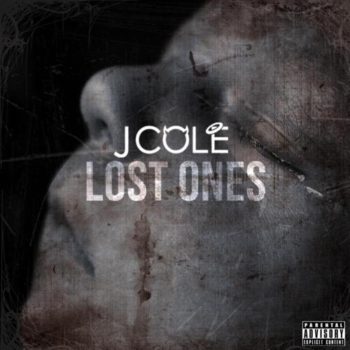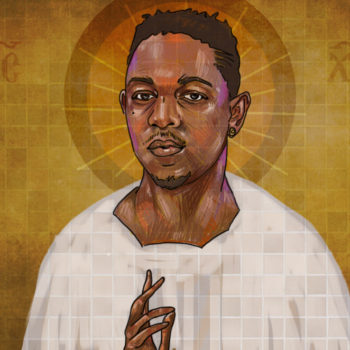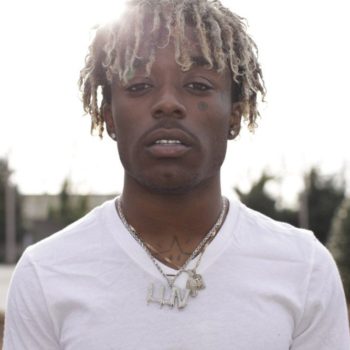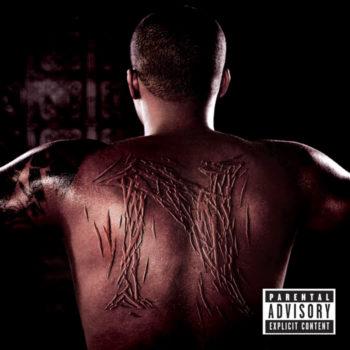Kendrick Lamar dropped a bomb on the hip-hop community this month with his much talked about verse on Big Sean’s “Control,” eliciting responses from the likes of Joe Budden, Joell Ortiz, Cassidy, Papoose, Lupe Fiasco and more.
Even beyond that it has resulted in many debates over the lyrical integrity, significance, and message behind Kendrick’s rhymes, resurrecting the dead horse that is competitive lyricism, or the lack thereof, in contemporary hip-hop. It’s that same dead horse that calls into question the implications of K.Dot’s lyrics in an age when attention spans are as fickle as the trending topics they conjure; an age where a personal challenge to any rapper doesn’t necessarily warrant a response.
What is the importance of Kendrick’s verse at a time when retaliation is menial, and hot topics can easily become old news by the end of the week?
Every rapper lays claim to killing your favorite rapper, whether it be through flashing wealth and material possessions, or shedding blood on the mic. Those types of braggadocious flows and statements have become such a standard part of any rapper’s catalog, that many no longer question an artist’s ability to actually back those claims. It’s almost a basic requirement in hip-hop to say that you’re the best, even if it might be far from the truth.
Herein lies the problem: artists assert an often empty prowess over others in the game in an attempt to adhere to a conventional formula without the means or the real confidence to back it up.
Unfortunately, we live in a paradoxical time in Hip-Hop where one can be the best in terms of record sales and popularity, without necessarily being a good emcee. The two are almost mutually exclusive. This is where the significance of Kendrick’s verse finds it’s foothold.

The difference with Kendrick is that he is one of the first mainstream artists in a long time that is actually a multi-threat – respected as having the lyrical ability to really slaughter almost any rapper while at the same time having the record sales and notoriety that come with being a mainstream artist.
He released, arguably, one of the best albums of last year, garnering the attention and esteem of both old-school hip-hop artists and contemporary ones alike. He found a way to live in both worlds without compromising, and was successful at it during a time when up and coming artists felt they had two options: go mainstream and sell out, or stay underground and never get truly noticed. The attention and respect that he gained as a result is the reason why people responded to his verse the way that they did.
Even if you believe that he didn’t have the technically superior rhyme on “Control” or that his bars were overrated and lukewarm at best, those opinions become irrelevant in the face of the residual response brought on by his blunt challenge and call to action.
Namely: rappers need to step their game up, or risk losing their spot in it.
 The significance of Kendrick’s verse lies in one thing: the impact. No other verse on “Control” could elicit that oh shit moment, and it has to do with the artists as much as it has to do with the lyrics. Jay Electronica is definitely up there for me when it comes to the intricate way he puts rhymes together, but if he had boldly called out any names on “Control” the way Kendrick did, it would have fallen on deaf ears. No offense to Jay-Elec, but many of his already frustrated fans have mentally shoved his album into the Detox category. He was a promise that was never delivered upon, no matter how dope of a lyricist he is.
The significance of Kendrick’s verse lies in one thing: the impact. No other verse on “Control” could elicit that oh shit moment, and it has to do with the artists as much as it has to do with the lyrics. Jay Electronica is definitely up there for me when it comes to the intricate way he puts rhymes together, but if he had boldly called out any names on “Control” the way Kendrick did, it would have fallen on deaf ears. No offense to Jay-Elec, but many of his already frustrated fans have mentally shoved his album into the Detox category. He was a promise that was never delivered upon, no matter how dope of a lyricist he is.
The reason people responded to Kendrick’s bold statement to murder every artist that he mentioned, is because he could actually deliver in all categories: lyrics, sales, and the ability to make a quality, concise album. In short, people believe him.
Truthfully, unless one of the artists Kendrick mentioned on “Control” responds, this whole thing will most likely fade out in a week or two. However, don’t confuse the longevity of the current situation with the importance of it. Even after the hype has settled over the playing field, it may no longer look the same. K. Dot’s competitive approach isn’t new to hip-hop, but it’s something that has been sorely lacking to the point of creative complacency.
In a genre of music where some level of arrogance is a necessity by default, where many rappers lay claim to being their only competition, fans confuse the compulsory egotism of hip-hop with combativeness. Egotistically driven rhymes are simply a prerequisite to being a rapper, and shouldn’t be taken as evidence of the willingness to be competitive.
Kendrick’s verse was important to the genre as a whole, because it was a challenge that actually required rappers to step it up and back their audacious rhymes and assertions of being the best by really proving that they deserve the title, or risk losing their spot to the better opponent.
Last time I checked, that’s what an emcee is supposed to do.






